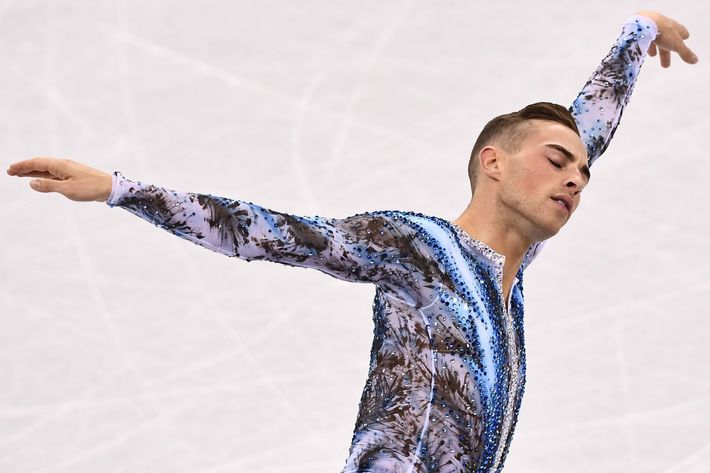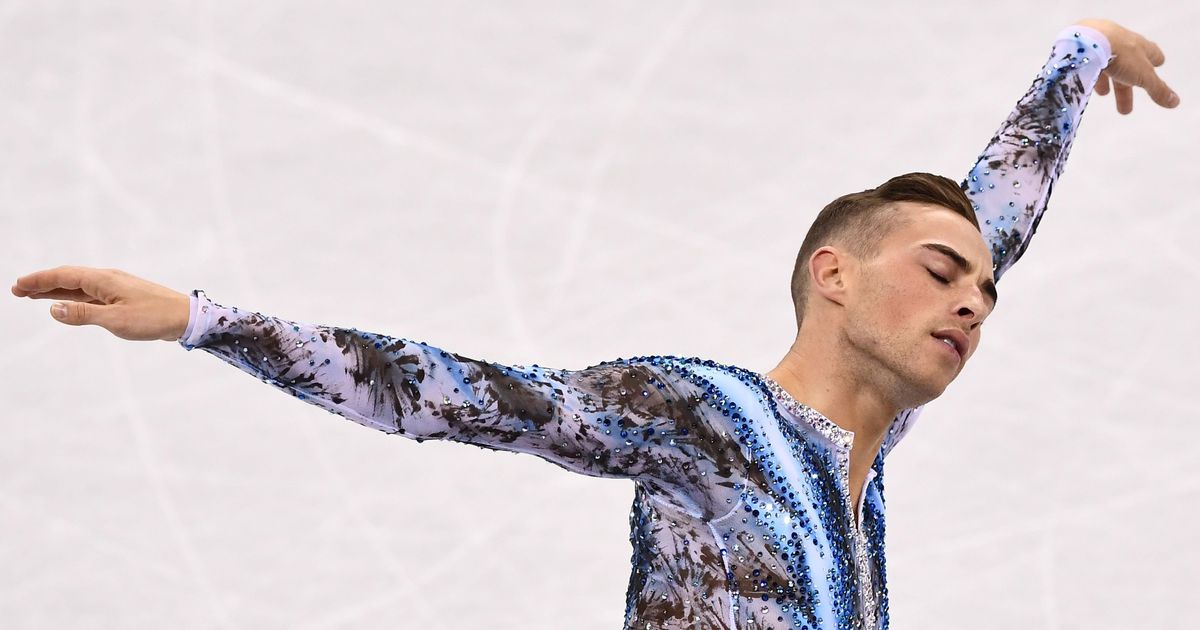
After way, way too many routines set to Bizet’s “Carmen” and Tchaikovsky’s “Swan Lake,” the music rules in figure-skating competitions changed to allow music with lyrics after the Sochi Winter Olympics in 2014. Following the change, skaters started to set their routines to songs like Ed Sheeran’s “Give Me Love” and “Black Betty” from Ram Jam. A performance by Jimmy Ma went viral when he took to the ice with a shotgun spin and DJ Snake and Lil Jon’s super-catchy club mix “Turn Down for What” at this year’s U.S. Championships. Ma didn’t make it to this year’s Winter Olympics, but he did win over the crowd. But because we know you still have questions about who gets to play what when and for how long, we’ve broken down everything you need to know about figure-skating music.
A rule change now allows figure skaters to use music with lyrics
The International Skating Union’s (ISU) decision to allow music with lyrics was taken way back in 2012, but the change only came into effect after the Sochi Winter Olympics in 2014. The new rules now also allow single skaters and pairs to use music with lyrics and vocals in their programs — in the past, this led to an automatic deduction of points. Even if the music had no lyrics, but did contain vocals, skaters were still penalized.
The music rules for ice dancing changed a decade ago
Ice dancing has allowed music with lyrics since the 1997–1998 season. Competitors are, however, a bit restricted in their choice: For the short program, the ISU picks a different type of dance every season, and the music choices have to complement the type of dance. For the Pyeongchang Olympics, the ISU chose Latin American rhythms that include the rhumba, salsa, and the cha-cha. Skaters have to give expression to the rhythm and feeling of the music, as well as show finesse. According to the rule book, this partly refers to “personal ways of bringing subtle variations to the intensity, tempo and dynamics of the music made by the composer and/or musician.”
The International Skating Union’s regulations make no mention of whether explicit lyrics are allowed
Guess everyone’s cool with a li’l Lil Wayne then? Canada’s Meagan Duhamel and Eric Radford’s winning performance in the team free skate at this year’s Olympics, for instance, was set to Adele’s “Hometown Glory.” The song includes an expletive in the chorus (“Shows that we ain’t gonna stand shit”) and was broadcast as is on NBC.
There is no mention of any restrictions on original music either
Before skating to Rihanna’s “Diamonds” in Japan last year, Adam Rippon sang a cover of the song. Rippon was planning on skating to a recorded version of his cover at the Olympics this year, but ultimately decided against it.
The music isn’t free
As the New York Times reports, artists are afforded royalties that are funded by the standard licensing fees that broadcasters pay to use music. For a live event like the Olympics, additional permissions aren’t needed to be able to use the song as it is covered by blanket performing rights that allow its use in a commercial, public setting. It works a little bit differently than, say, when a Beyoncé song is used in a TV show. Then permission to use the song has to be brokered ahead of time and fees negotiated for what is called a synchronization licence.
The time limits for performances stay the same for the skating events
The music-rule change has no effect on the allowed duration of performances. These differ according to event. For men, women and pairs, the time limit for the short program is two minutes and 50 seconds. Women’s free skate is capped at four minutes, while men’s and pairs free skate is limited to four minutes and 30 seconds. The time limit for ice dance is two minutes and 50 seconds for the short dance and four minutes for the free dance. For all the events, a leeway of ten seconds more or less than the limit is given.
Figure skaters’ choice of music forms part of the Program Component Score
The scores for both the short program and the free skate are calculated by adding the Technical Elements Score (the difficulty and execution of, for instance, a skater’s footwork and jumps) and the Program Component Score (artistry and presentation) of each routine together. Music plays a role especially in the latter’s focus on the interpretation of the music “physically, emotionally and intellectually as they deliver the intent of the music and composition.” The composition element of this is about the choreography of the performance — the “original arrangement” of different movements to the music form part of the scoring process, as well as the idea, concept, vision, and mood as it relates to the music. An overall winner is determined by adding the scores of the short program and the free skate.
There is no rule prohibiting skaters from choosing the same songs
This has led to a lot of overlap and quite a few “Who Wore It Better?” situations since figure skating’s introduction to the Olympics in 1908. This year is no exception — the Moulin Rouge soundtrack is the firm favorite and has even boosted its sales on iTunes. Canada’s Tessa Virtue and Scott Moir, American Vincent Zhou, and pair skaters Alexa Scimeca-Knierim and Chris Knierim, as well as Michael Christian Martinez from the Philippines and Australia’s Kailani Craine, all included it in their programs.
The music-rule change came as interest in the sport dwindled
The New York Times previously reported that there were multiple past attempts to upend the rule, but it took years before the ISU approved the change with a two-thirds majority, motivated in part by low ratings and diminishing interest among kids to take up the sport. Let’s face it: The majority of kids aren’t just randomly listening to Tchaikovsky — music with lyrics and popular songs make the sport more relatable to a younger audience.
Despite the change, classical music and soundtracks are still the most popular choice among figure skaters
An analysis by The Wall Street Journal showed that classical music and soundtracks are still top choices for American contenders. Ma seems to think that a possible negative reaction from the judges may play a role in the continued preference for golden oldies and tweeted that his choice of music was “too intense for the judges.” The use of classical music in the current season, however, dropped to 25 percent from 47 percent in the 2009–2010 season. Rock and pop choices among American skaters have steadily increased, with more than 20 songs being used this season. In this year’s Olympics, the Canadian team chose the most rock and pop songs. Skaters also often switch between genres for their performances, sometimes performing to a classical number in the long program and then to a more upbeat song in their short program.
The music choices at the Pyeongchang Olympics include everything from Céline Dion to heavy-metal band Disturbed
Notwithstanding figure skating’s current obsession with Moulin Rouge, some of the other pop and rock song choices at the Olympics include France’s Maé-Bérénice Méité’s “Run the World (Girls)” and “Halo” by Beyoncé, and her teammates Vanessa James and Morgan Ciprès beautifully performed to Disturbed’s cover of “The Sound of Silence.” South Korea’s Yura Min and Alexander Gamelin skated to a medley that included “Despacito,” by Luis Fonsi and Daddy Yankee, while Team USA’s Adam Rippon slayed to “O (Fly On)” by Coldplay. The Beatles also featured: Italy’s Matteo Rizzo performed to their hit “Help!”

